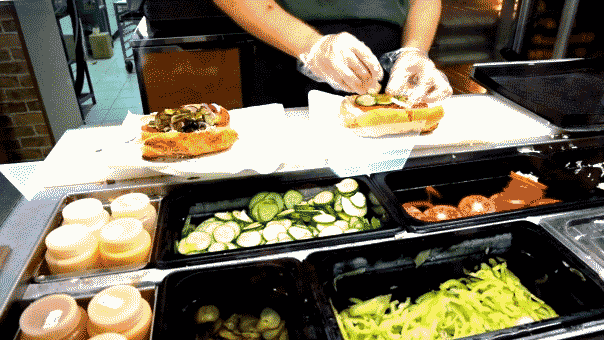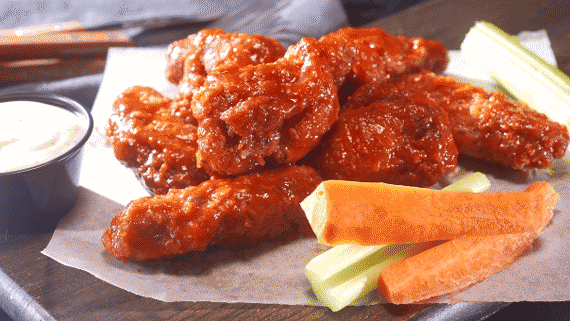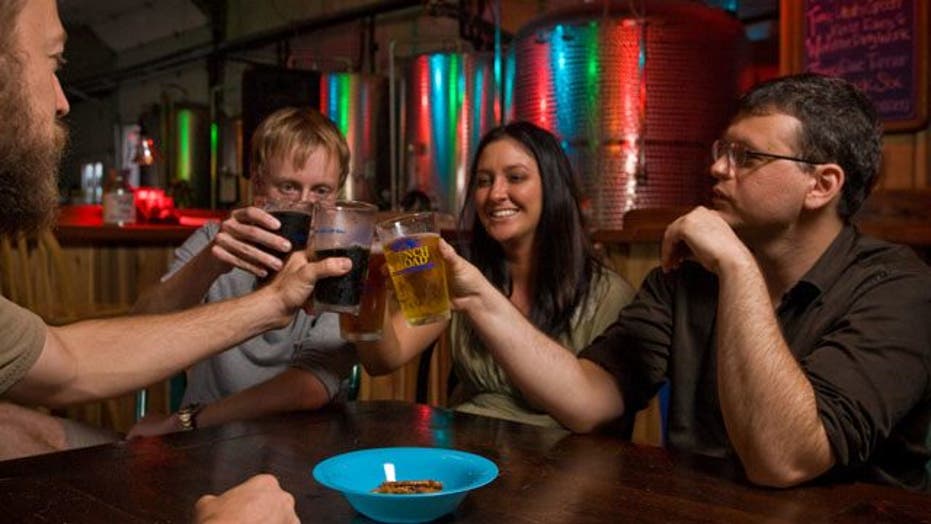If you mention beer in the mountains of western North Carolina, you’ll be likely hear one name – Oscar Wong. He is known as the “Godfather” of the modern beer movement here, after opening the first craft brewery back in 1994.
“It took eight years to break even and my wife, who used to think I was a smart guy, was really worried,” says Wong, about opening the Highland Brewing Company in Asheville, North Carolina. “But then it turned around and I would say it was probably 2003 before I started to sense that the community was very supportive and we had something going.”
What started out as a way for Wong to save money in college grew into a hobby after graduation. But the one-time nuclear waste engineer never expected to be a trailblazer in a micro-brewery industry that would eventually put Asheville on the map with the title of “Beer City, USA.”
“I feel very fortunate that I am an immigrant from Jamaica with parents from China. I have a Notre Dame degree and I own a Scottish Brewery in Asheville, North Carolina in the middle of the Bible Belt. It doesn’t get any more mixed up than that – only in America,” Wong says.
For three years running, Asheville has beaten out bigger cities for the Beer City title in an on-line poll conducted every year by the Examiner. It’s a surprise winning streak for a small city to beat out much bigger rivals like Portland, Oregon and San Diego. Local brewery owners say the success of the eleven breweries in the area, more per capita than anywhere else in the US, is all thanks to unprecedented support from local residents.
“I think it’s a couple of pretty cool combinations,” says Mike Rangel, owner of the Asheville Brewing Company. “I think in this town we are kind of ‘foodies.’ We are embracing the farm-to-table movement, eating local and the organic movement which put us ahead in the craft beer movement.”
Rangel was in the pizza business when he bought a restaurant that came with an existing brewery in 1995. Three years later, he bought out the brewing side of the restaurant and started making his own style of beer. Today, demand for his an Old School Pale Ale, Scout Stout and ten other beers brewed by the Asheville Brewing Company, has grown so much he will be adding a third brewery location this year.
“We are nowhere near able to keep up. We are producing about 50 percent of the demand right now and that’s a great problem to have,” Rangel says.
The booming brewing industry has been a perfect complement to an area that is already popular with tourists and boasts a cutting edge culinary scene. Situated in the middle of the Blue Ridge Mountains, Asheville is a destination for outdoor enthusiasts, food lovers and artists. The area hosts more than three million overnight visitors per year.
Dodie Stephens, Senior Communications Manager with the Asheville Convention and Visitors Bureau, estimates the breweries and brewery-related business help boost the $2 billion per year tourism industry in Western North Carolina. Stephens says the breweries and the thriving culinary industry work together to promote each other – a relationship benefits all Asheville businesses.
“For us, telling the story of Asheville’s culinary and microbrew culture has been an important tactic for our marketing efforts,” Stephens says. “We are putting that information out on the web and we are using it to describe Asheville and it’s another layer and another reason for people to come back.”
The flow of beer in Asheville shows no signs of slowing down. The city recently scored another big win when Sierra Nevada, one of the first and biggest craft breweries in the country, announced they are opening their east coast operations just 12 miles south of the city. Sierra Nevada cited ease of shipping, an abundance of fresh water and a community that already supports the craft beer culture when choosing Western North Carolina out of hundreds of possible locations. Colorado-based New Belgium Brewery, nationally known for their ‘Fat Tire’ beer also has Asheville on the short list for their east coast expansion.
But local brewers like Wong and Rangel aren’t threatened by the bigger competition moving to town. They say craft beers are getting more popular with each passing year and predict that mass manufactured labels like Budweiser, might someday be replaced as the “King” of beers.
“Looking at the national numbers and regional numbers, craft brewing has nowhere to go, but up. Budweiser, Miller and Coors look out,” Rangel says.
For more information on Asheville breweries and visiting western North Carolina click on the Asheville Visitor and Convention Bureau’s website.









































